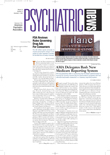Over the course of a week I got almost daily e-mails asking me to help with a “reintegration session.” The approximately 1,300 Oregon National Guardsmen who had been sent to Louisiana to help in the Hurricane Katrina efforts have been coming home in waves of 200-500 soldiers and needed a “debriefing,” including information on the mental health effects of their experience. My role was to talk with them about mental health problems that might arise after their return.
Eager to volunteer, I found myself somewhat frustrated that the dates and times that they were to land and be debriefed kept changing. It made it hard to put into my not-so-flexible schedule. As I complained, someone said to me,“ How do you think the guardsmen feel?”
Indeed, they have more to grouse about than I do. Their Louisiana call-up began right before the Labor Day weekend. Usually the last sunny weekend in Oregon, before the six months of darkness and rain that is our winter. This is the last time to go fishing, or heat up the barbecue, take that trip to the ocean, or go boating on the river. All this traded for the mission of going to Louisiana to help in rescue and recovery efforts.
I asked one of my colleagues if he wanted to go to the reintegration seminar with me. He asked, “What would we do?” I had to tell him that I really did not know. All I knew was that we had to talk about mental health, but the details of what we needed to say were unknown to me. I had never been a psychiatrist in a time of war or natural disaster.“ Military reintegration” was not a rotation I had had in my residency training program. It occurred to me that professionally we may sometimes be challenged with experiences for which no amount of training will prepare us.
I had done my homework, however, by the time my day came. I drove out to the airport, to the National Guard Armory. The gymnasium-like drill floor was set up with stations: check-in, medical, travel pay, address change. All the stations had to be checked off, or the guardsmen would not be allowed to leave the building to return home. Tables were filled with lunch bags that included food donated by local organizations. The guardsmen landed in commercial airliners on the National Guard airfield and then were bused to the base.
They started to trickle in, and then flood. All of them were wearing uniforms in shades of sandbox tan. A few still wore their camel backs that allowed for instant access to water. Most carried machine guns, some had flags, one a map, and one a giant green stuffed frog with Mardi-Gras beads wrapped around its neck. Most were young, but some were older. Most were not veterans of any war, though a few had been to Iraq, Afghanistan, or even Vietnam. The vast majority were men, but interspersed among them were a few women.
In a classroom across from the gymnasium was the station where the guardsmen would be briefed by the judge advocate general about legal issues, an employment specialist about returning to previous jobs, the Department of Veterans Affairs about health services (including mental health services), and the chaplain. Groups of 50-75 cycled through. The theme of these talks was that if you are having a problem, it is better to get help sooner rather than later.
I presented my part five times during a period of about four hours, but the other presenters had been there for days repeating their information over and over. For my part, I described what some of the normal symptoms of readjustment are, including readjusting to home life and dealing with both good and bad memories of the mission. I also reviewed some of the symptoms, such as poor sleep, increased irritability, increased substance abuse, and marital and work problems that might signal the need for mental health care.
For psychiatry residents and others who are looking for ways to volunteer to help with the aftermath of the Katrina and Rita disasters there is a wealth of ideas and resources on the APA Web site at<www.psych.org/disasterpsych>, National Center for PTSD Web site at<www.ncptsd.org>, and others. One way to help is to support the work of first responders such as police, firefighters, search-and-rescue teams, and in this case, the National Guard.
It had started to rain in Oregon while the reservists were away. I watched them line up outside on the tarmac to get their mission ribbon. Welcome home and thank you. I heard on the news that the same guardsmen will be redeployed in nine months to Afghanistan. I thought that nine months seemed to be an awfully short time before they had to be ready to face even more crises and trauma. ▪

